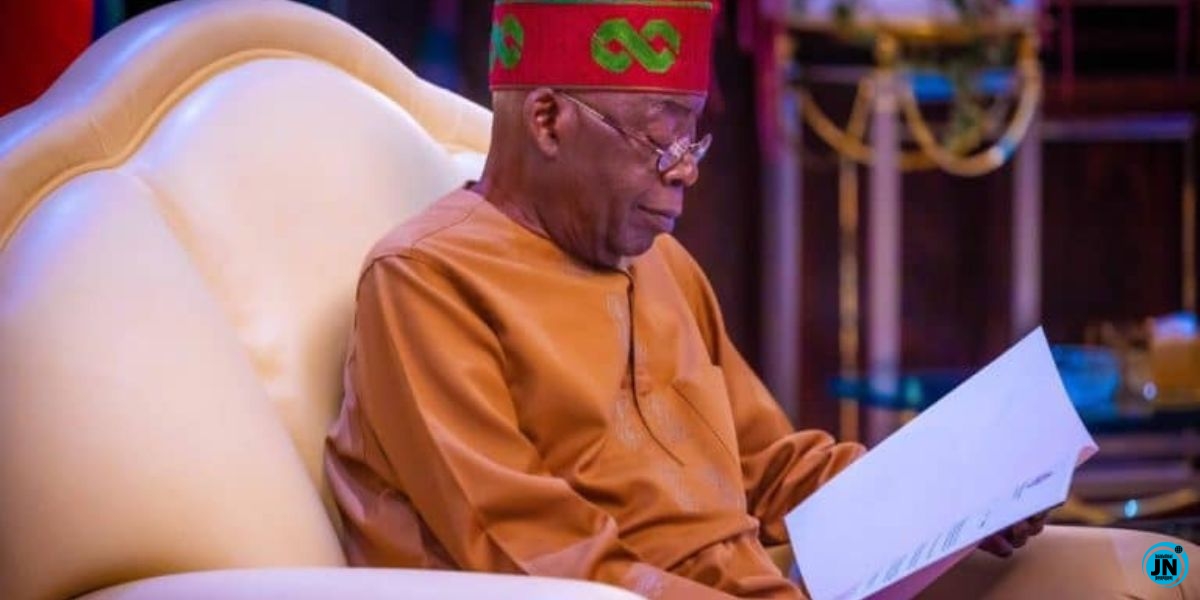[img]` BBCode tags:
---
[p]

The Socio-Economic Rights and Accountability Project (SERAP) has taken legal action against President Bola Ahmed Tinubu over alleged large-scale corruption involving ₦167 billion in public funds, which were reportedly paid to contractors without any projects being executed.
SERAP, a well-known anti-corruption advocacy group, filed a lawsuit at the Federal High Court in Lagos, arguing that the government failed to prosecute individuals and companies involved in the fraudulent transactions. The case, registered under Suit No. FHC/L/MISC/121/2025, also names the Attorney General of the Federation (AGF) and Minister of Justice, Lateef Fagbemi (SAN), as a respondent.
In its statement released on Sunday, SERAP accused 31 ministries, departments, and agencies (MDAs) of making payments totaling ₦167,592,177,559.40 to various companies without delivering any tangible projects or services.
SERAP’s Legal Demands
SERAP’s legal team, led by Kolawole Oluwadare and Oluwakemi Agunbiade, is asking the court to issue an order compelling President Tinubu to:
Direct the Attorney General of the Federation to immediately prosecute companies and contractors who received public funds without fulfilling their contractual obligations.
Instruct the Minister of Finance, Olawale Edun, to publicly disclose the names of all contractors and companies implicated in the fraud.
Publish full details of the affected projects, including their locations, financial breakdowns, and the names of company shareholders.
SERAP’s Arguments Against Corruption
The legal filing outlines several key reasons why the court should compel the government to act:
The mismanagement of ₦167 billion has deprived Nigerians of essential public services, including healthcare, education, and infrastructure development.
Taking action against corrupt contractors would help prevent future cases of fraud, waste, and mismanagement of taxpayer funds.
Allowing those responsible to escape justice undermines the Nigerian Constitution (1999 as amended) and violates the country’s commitments under the United Nations Convention against Corruption.
In its submission, SERAP emphasized that “public accountability is a fundamental pillar of democracy, and the Nigerian people have a right to demand transparency and justice.”
Breakdown of the Corruption Scandal
According to the 2021 Annual Audit Report by the Auditor-General of the Federation—officially released on November 13, 2024—31 MDAs were found to have collectively misallocated ₦167,592,177,559.40. Some of the key revelations include:
The Nigerian Bulk Electricity Trading Plc. (NBET) allegedly paid ₦100 billion for incomplete projects.
Several other government agencies were implicated, including:
Nigerian Correctional Service
National Pension Commission, Abuja
Federal College of Land Resources Technology, Owerri
Hydrocarbon Pollution Remediation Project (HYPREP) Office
Petroleum Technology Development Fund (PTDF)
Federal Ministry of Youth and Sports Development
Federal Medical Centre, Bida, Niger State
National Centre for Women Development
Institute for Peace and Conflict Resolution
National Business and Technical Examinations Board (NABTEB)
Federal University of Gasua
Ministry of Niger Delta Affairs
SERAP’s Call for Government Transparency
SERAP has strongly urged the Nigerian government to release all details regarding the fraudulent contracts and ensure that those responsible face legal consequences.
The organization stressed that the Nigerian people have the constitutional right to transparency in governance and should not be forced to bear the consequences of corrupt practices within government institutions.
At the time of filing this report, the court has not yet scheduled a hearing date for the case.

